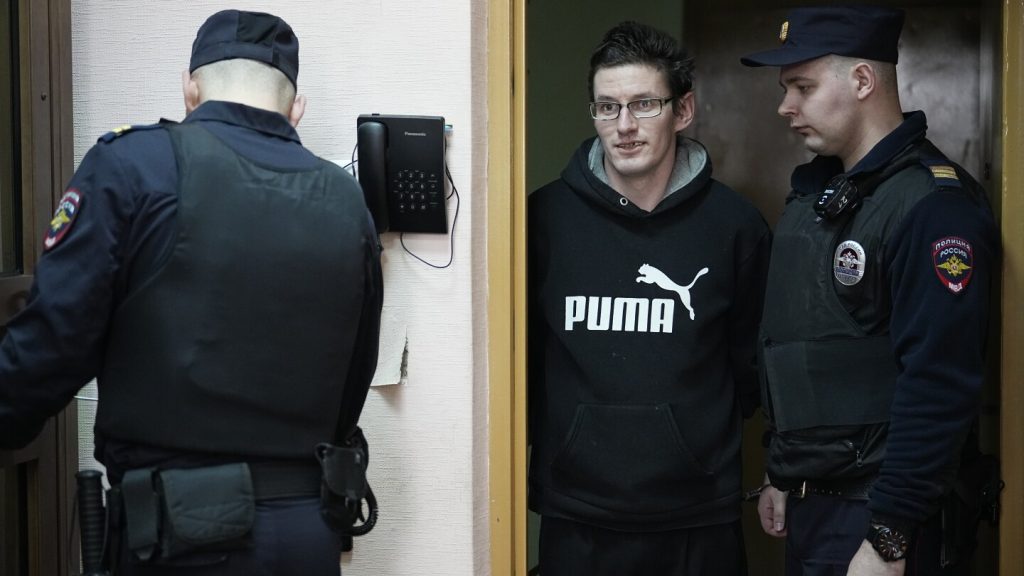Robert Woodland, a U.S. citizen, was arrested in Moscow on drug charges, with his case being adjourned until mid-May. He is facing charges of trafficking large amounts of illegal drugs as part of an organized group, which is punishable by up to 20 years in prison. Woodland was remanded into custody in January, and his trial began in late March at the Ostankino District Court. His lawyer stated that there is no evidence of drug sales in the case materials. The next hearing date was set for May 14, and the U.S. State Department expressed awareness of the situation, emphasizing the safety and security of U.S. citizens overseas.
Reports from Russian media indicate that the name of the accused matches that of a U.S. citizen who was interviewed by the newspaper Komsomolskaya Pravda in 2020. In the interview, the man stated that he was born in the Perm region in 1991, adopted by an American couple at the age of 2, and traveled to Russia in search of his Russian mother. He eventually met her on a television show in Moscow and decided to settle in the town of Dolgoprudny near the capital, where he worked as an English teacher. This background information sheds light on Woodland’s personal history and connection to Russia.
Arrests of Americans in Russia have become more frequent as tensions between the two countries reach Cold War levels. The U.S. has accused Moscow of targeting its citizens and using them as political pawns, while Russian officials argue that these individuals have violated the law. Some detained Americans have been exchanged for Russians held in the U.S., while others face uncertain prospects of being released through a similar swap. The situation highlights the strained relationship between the two nations and the challenges faced by individuals caught in the crossfire of geopolitics.
The U.S. Embassy in Moscow issued a statement expressing concern for the detained U.S. citizen but refrained from commenting further, citing privacy considerations. The case of Robert Woodland underscores the complexities of international legal disputes and the impact of political tensions on individual lives. As the trial continues, it remains to be seen how the legal proceedings will unfold and whether diplomatic efforts will play a role in resolving the situation. Woodland’s experience serves as a reminder of the risks faced by foreign nationals in countries with strained relations and the importance of safeguarding their rights and well-being.
The trial of Robert Woodland in Moscow has garnered attention from both Russian and international media, shedding light on the challenges faced by foreign citizens navigating legal systems in unfamiliar environments. The accusations against Woodland highlight the serious consequences of drug-related offenses in Russia, where penalties can be severe. As the legal process unfolds, Woodland’s defense team will continue to make their case, while diplomatic channels may also be engaged to address his situation. The outcome of the trial will have implications beyond the individual case, impacting broader discussions on international law enforcement and diplomatic relations between countries.


